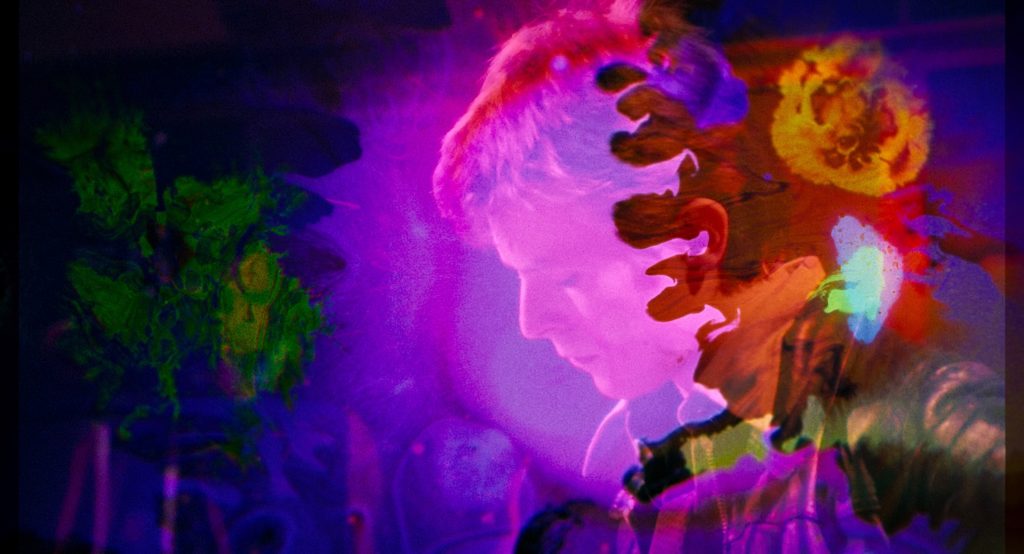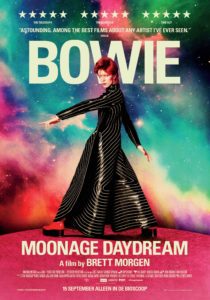Moonage Daydream was one of the most extraordinary films of 2022. Brett Morgen (53), director of Kurt Cobain: Montage of Heck and Jane was the mastermind behind this insane project. Based on thousands of hours of footage, the documentary maker worked for at least four years on a mesmerising documentary about David Bowie. And it almost cost him his life. Gentlemen's Watch zoomed in with the director.
Text: Jorrit Niels Photography: Francois Berthier, Universal Pictures
Note: Moonage Daydream is not a straightforward docu from birth to death, but an almost impressionistic cinematic image that gives an idea of the person Bowie. The documentary by director Brett Morgen follows the extraordinary creative life of the pop culture icon who died in 2016. The film premiered at the Cannes Film Festival in May to rave reviews and is now getting a theatrical release. A spectacle worthy of Bowie's enormous personality. The almost sensory experience (no exaggeration) is best seen on the biggest screen possible, where the 140 minutes fly by.
The film was made with the cooperation of Bowie's heirs, did they have any influence?
"They told me to make the film I wanted to make. David was not here to authorise my work, so it's not David Bowie about David Bowie, it's Brett Morgen about David Bowie. Because of their cooperation, I had access to thousands of hours of material. In total it was as many as five million media items, from video archives to master recordings of his songs."
How do you start such a monster job?
"I start each film by reading every book on the subject so that I can create context for experiencing the 'media'. Then I collect all the existing footage, and once I think I am complete, I start screening the material chronologically. I knew the film was going to be more of an IMAX experience and non-biographical. The through-line was chaos and impermanence."
 What does that mean in practice?
What does that mean in practice?
"When I go through the materials, I usually just try to absorb it. You only get one chance to see something for the first time. So I try to immerse myself until I reach the end, without notes. And then I start writing. So for two years, it was like watching television. Watching David Bowie every day. Everything was digitally transferred to my office. We scanned every document. I asked the staff to at least organise things chronologically, but there was no table of contents. I would know which year I would look at that day, but that was it. Then you find out gems, like footage from the Diamond Dogs tour that I didn't even know existed."
Impressive, but something that almost killed you.
"I was my own editor, producer and director for this film. In the process, I felt a huge responsibility to deliver something beautiful. That became too much for me and I had a huge heart attack. I was a few minutes flattened and spent a week in a coma. The reason: that responsibility and my life was out of balance."
What was it like getting back to work after that?
"I have three children and when I had somewhat recovered, I thought, 'What has been the message of my life?' Very hard work? No, it had to be more than that. The making process became a kind of guide for me on how to survive, how to live the most fulfilling life I could possibly lead. I realised that the film would be an opportunity to pass on that message to my children and the rest of the world. A life-affirming message. I couldn't have made this film without that experience. When you see the film, it's very much about learning to appreciate every day and every moment."
 Is there anything about Bowie that impressed you the most?
Is there anything about Bowie that impressed you the most?
"There's a line in the film where David says: 'The moment you realise you've lived more days than you have ahead of you is the moment you can really start living your life and acceptance comes in.' David had such poise and balance -I did not know him personally, but from my experience going through all the media- that I felt he guided me through my recovery. In turn, I was able to pour that into the film so that it was about something completely different. It became a celebration of every moment."
It is deliberately not a straightforward docu, why?
"Moonage Daydream is not a film about David Jones (Bowie's real name ed.). And it's not a film about David Bowie. It's a film about 'Bowie'. The imagery of the film was all that performance is. So whether he is an actor in The Man who Fell to Earth, whether he is singing on stage or doing an interview, it is all a performance. With that, I necessarily wanted to make something for cinema. Cinemas have the best sound systems for listening to music. So why should I waste image and space on a biography that you can also read on Wikipedia? I wanted to create a form of film that is experiential. A new way of conveying the essence of an artist. I want to make a film that is just an immersion in his creativity. That was my pitch at the time and you see that on the silver screen now."



